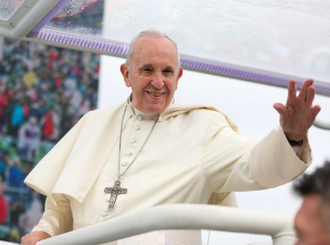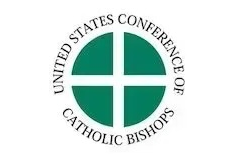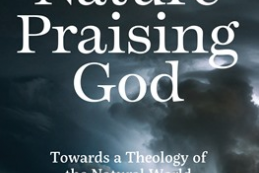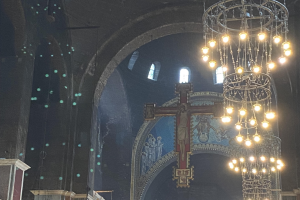Irish bishops praise Pope Francis' new exhortation on environment

Pope Francis in Phoenix Park, Dublin, before Mass on final day of World Meeting of Families. 08/18
Source: Irish Catholic Media Office
'Pope Francis invites us in Laudate Deum to be reconciled with our Common Home and renew our 'interconnectedness' with the world of nature by way of a cultural change rooted in continuing changes to our personal lifestyle, alongside the challenge of major decisions which must be made at national and international levels.'
Today, on the Feast of Saint Francis of Assisi patron of the environment, bishops welcomed the publication by Pope Francis of his new Apostolic Exhortation, Laudate Deum (Praise God). The Bishops of Ireland are currently gathered in Saint Patrick's College, Maynooth, for the final day of their Autumn General Meeting.
Laudate Deum (LD) complements the Holy Father's 2015 ground-breaking encyclical letter Laudato Si' - on Care for Our Common Home (LS), which was addressed to 'every single person living on this planet', and focused on care for the natural environment and all people, as well as broader questions of the integral relationship between God, humans, and the Earth.
Following this central theme of 'interconnectedness' in Laudato Si', Pope Francis calls us in Laudate Deum (LD) to urgently attend to the climate crisis caused by our embrace of the concept of unlimited economic growth. Noting recent extreme weather patterns, the Holy Father warns of reaching a critical point due to this global reality of irreversible climate change. In today's Apostolic Exhortation, Pope Francis cites scientific evidence to show that the recent acceleration in global warming can be attributed largely to our burning of fossil fuels in the name of economic progress to the detriment of our ecological richness.
In recognising that we are 'a part of' rather than 'apart from' our world, Pope Francis, drawing from Catholic Social Teaching, offers commitment to the ethic of the global common good as a way forward. It can counter the forces of marketing and false information as well as the policy of maximum profit for an elite powerful minority so as to ensure our legacy for our future generations. We cannot rely on the 'technocratic paradigm underlying the current process of environmental decay' (LD 20 / LS 101).
Pope Francis calls attention to the weakness of international politics, which has failed to ensure the common good, fundamental human rights and to act through solidarity to alleviate hunger and poverty. The emergence of this new global reality of climate change, according to Pope Francis, requires a different framework for effective international cooperation. We must allow the activism of alternative solutions to emerge and be heard.
In noting the efforts made by many people to reduce pollution and waste, and to consume with prudence, Pope Francis writes that the 'mere fact that personal, family and community habits are changing is contributing to greater concern about the unfulfilled responsibilities of the political sectors and indignation at the lack of interest shown by the powerful'. Nonetheless, Pope Francis continues to express the view that such actions by people 'are helping to bring about large processes of transformation rising from deep within society' (LD 71).
Although he acknowledges the successes, he highlights the failure of recent COP events, noted for their multiple recommendations and weak instruments of implementation, where the richer nations adopt positions counter to the common good. Past failures of responsibility present a real challenge for the upcoming COP28, from 30 November to 12 December in Dubai, which, according to Pope Francis, must address the issue of energy transition to renewable sources. He states that the reliance upon technological solutions to energy transition is 'like pushing a snowball down a hill' (LD 57).
Noting that 'a healthy ecology is also the result of interaction between human beings and the environment', Pope Francis warns that '[w]e need lucidity and honesty in order to recognize in time that our power and the progress we are producing are turning against us' (LD 27-28). Hence, he concludes, 'when human beings claim to take God's place, they become their own worst enemies' (LD 73). From this comes the title of the Exhortation: 'Praise God!'
In light of our faith, we are called by Pope Francis to an awareness of the 'inexhaustible richness' of God's creation and to an appreciation of biodiversity so as to take up our responsibility for our Common Home.
In welcoming Laudate Deum, we invite all people to read it in the realisation that 'the world sings of infinite Love' (LD 65), and everyone has a duty to care for creation. In this important contribution by Pope Francis for the good of our natural environment, he invites us to be reconciled with our Common Home and renew our 'interconnectedness with the world of nature by way of a cultural change, rooted in continuing changes to our personal lifestyle, alongside the challenge of major decisions which must be made at national and international levels.'
LINK
Laudate Deum: www.indcatholicnews.com/news/48157


















